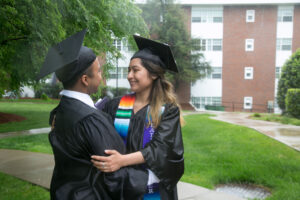 by Dick Hall-Sizemore
by Dick Hall-Sizemore
The 2021 General Assembly passed legislation that made students who fall into the “DACA” category (Deferred Action for Childhood Arrivals), sometimes called the “Dreamers,” eligible for in-state tuition at Virginia institutions of higher education.
To be eligible for in-state tuition regardless of citizenship or immigration status, an applying student must have:
- Attended high school in Virginia for at least two years;
- Graduated from high school on or after July 1, 2008; and
- Filed Virginia income tax returns ( by the student or parents) for at least two years prior to the college application date.
Out of the funding provided for financial aid to students in higher education institutions in the budget bill it adopted, the General Assembly earmarked $5 million each year for DACA students.
Governor Youngkin submitted a budget amendment that “redirected” that funding to financial assistance for students attending Virginia’s Historically Black Colleges and Universities (HBCUs). Those institutions would be Virginia State in Petersburg and Norfolk State in Norfolk.
Predictably, there was heated debate over this amendment. In the House, Del. Alfonso Lopez , D-Arlington, perhaps the strongest and most emotional advocate for DACA students in the House, asked Del. Barry Knight, R-Virginia Beach, chairman of the House Appropriations Committee and the floor manager of the Governor’s proposed amendments, why two high-need groups of students should be pitted against each other. Knight, in a somewhat awkward moment, replied that the amendment was the Governor’s and he supposed that in deciding which group to favor, the Governor chose the HBCUs. (The exchange can be seen here, at the 1:48 mark.) The House agreed to the amendment, 49-45, on a party line vote.
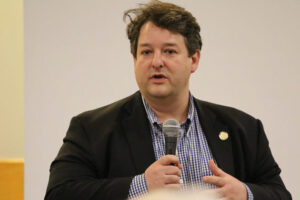
Del. Alfonso Lopez (D-Arlington) Photo credit: Arlington Now
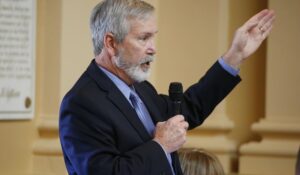
Del. Barry Knight (R-Virginia Beach) Photo credit: Washington Times
In the Senate, two Democrats, along with all the Republicans, supported the amendment, enabling it to pass, 21-19. The Democratic defectors were Joe Morrissey, whose district includes Petersburg, home of Virginia State University, and Lionell Spruill of Chesapeake. In explaining his vote, Morrissey said that he had talked to many Virginia State students who had told him that they would not have been able to attend college without financial assistance and, therefore, he was supporting Petersburg and Virginia State. It may be just a coincidence, but Morrissey, whose new district resulting from the 2021 redistricting does not include Petersburg, has announced that he plans to move so that he can continue to represent Petersburg. If he follows up on that plan, he would be running against former Delegate Lashrecse Aird in a primary election.
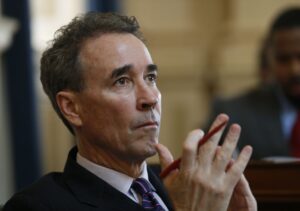
Sen. Joe Morrissey, (D-Richmond) Photo credit: Washington Post
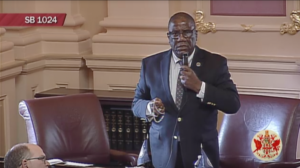
Sen. Lionell Spruill (D-Chesapeake) Photo credit: Newsweek
No matter what one thinks of Lionell Spruill, it must be admitted that he is direct. In his remarks regarding the amendment, he made no bones about his unqualified support of HBCUs. He related how an HBCU (Norfolk State) took a chance on a “poor boy” (him) and, in return, he will always support them. He wholeheartedly embraced the maxim, “Help my folks first.”
My Soapbox
This was a mean-spirited amendment. As several Democrats pointed out, there was enough revenue available to help both high-need groups. Instead, the Governor deliberately chose to cancel funding intended to help DACA students and provide it to HBCUs, although those institutions had already received additional funding in other amendments. It was a political move intended to give a nod to one portion of his base and shore up his bona fides with the Black community, possibly in anticipation of his national ambitions.
One of the ironies of this situation is, as Del. Alfonso pointed out, DACA students are guaranteed by law to “the same educational benefits, including access to financial assistance programs … as any other individual who is eligible for in-state tuition.” Thus, without the earmarked pot of money, DACA students will be in more direct competition for financial aid available to all students. It is likely that some non-DACA students who were on the margins of qualifying for financial aid, and would have gotten some otherwise, will lose out to DACA students who are more needy.


